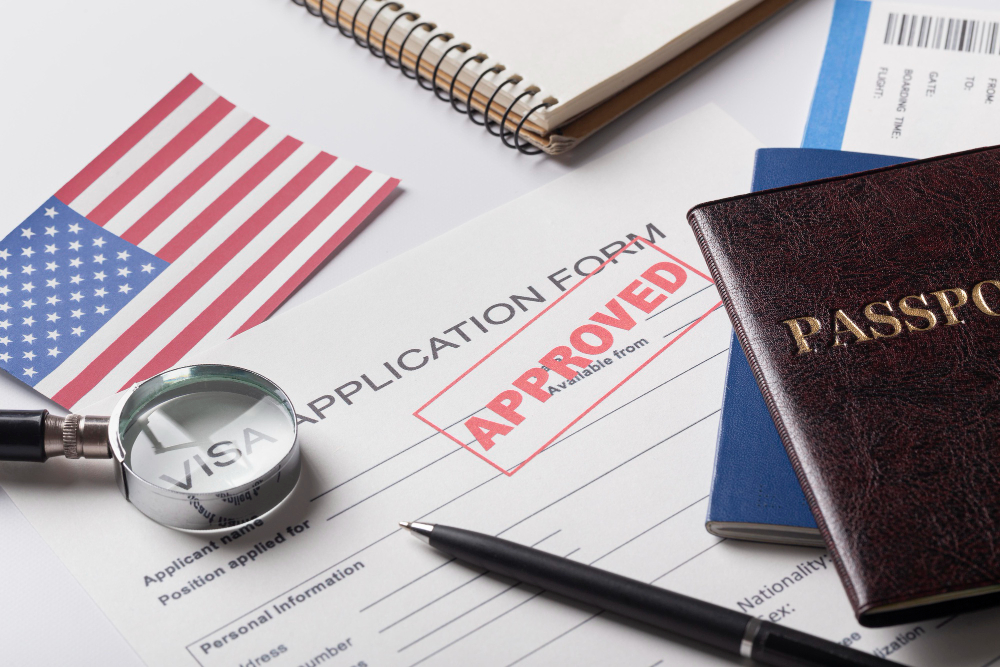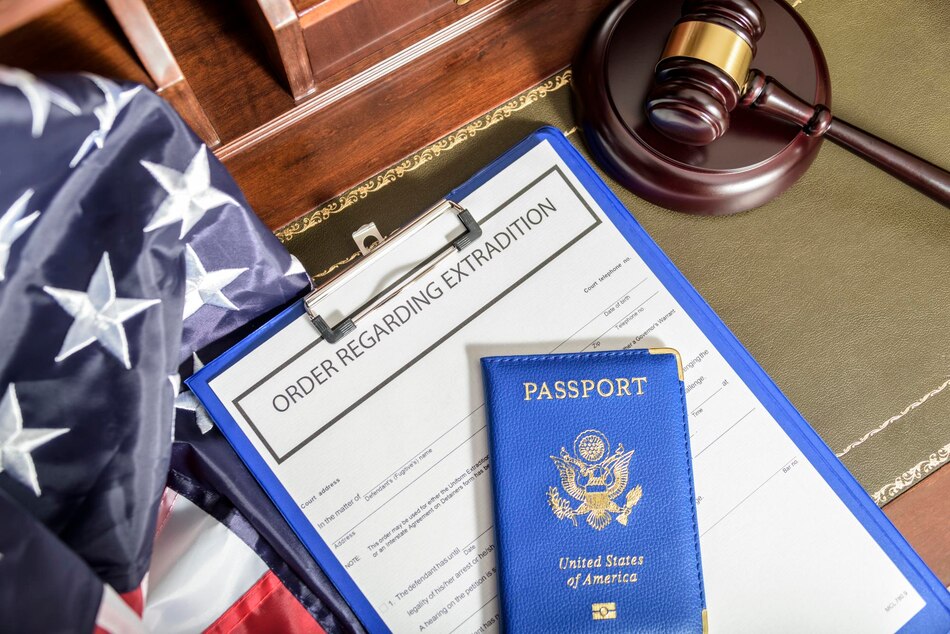Canada is known for its welcoming stance on immigration, and one of the key programs facilitating young immigrants’ entry is the International Experience Canada (IEC) program. Designed to offer young people from around the world the chance to work and travel in Canada, the IEC program has become a popular gateway for cultural exchange and career development. In this blog, we’ll explore the intricacies of the IEC program, its benefits, eligibility criteria, application process, and the impact it has on young immigrants and Canadian society.
Understanding the International Experience Program in Canada (IEC) Program

The International Experience Canada (IEC) program is a government initiative that allows young adults from participating countries to work in Canada on a temporary basis. It’s part of Canada’s broader immigration strategy to attract global talent and promote cultural exchange. The program is open to individuals aged 18 to 35, although the age limit can vary slightly depending on the participant’s home country.
IEC Categories
The IEC program is divided into three main categories:
- Working Holiday
- This category allows participants to work for any Canadian employer and travel throughout the country. It’s designed for those who want to fund their travel with short-term work.
- Young Professionals
- This category is for young people who have a job offer in Canada that contributes to their professional development. It’s geared towards those seeking to gain professional work experience in their field of study or career.
- International Co-op (Internship)
- This category is for students who are enrolled at a post-secondary institution in their home country and want to complete a work placement or internship in Canada as part of their studies.
Participating Countries
The IEC program is available to young people from over 30 countries that have a bilateral youth mobility arrangement with Canada. Some of the participating countries include Australia, France, Germany, Ireland, Japan, New Zealand, and the United Kingdom.
Benefits of the IEC Program

The IEC program offers numerous benefits for young immigrants and Canada alike. Here are some of the key advantages:
For Participants
- Work Experience
- Participants gain valuable international work experience, which can enhance their resumes and improve their career prospects.
- Cultural Exchange
- The program promotes cultural exchange, allowing participants to experience Canadian culture and way of life while sharing their own traditions and perspectives.
- Language Skills
- For non-native English or French speakers, the IEC program provides an opportunity to improve language skills through immersion in a bilingual environment.
- Networking Opportunities
- Participants can build a professional network in Canada, which can be beneficial for future career opportunities.
- Personal Growth
- Living and working abroad fosters personal growth, independence, and a broader worldview.
For Canada
- Diverse Workforce
- The program helps diversify the Canadian workforce with young, talented individuals from around the world.
- Economic Contribution
- Participants contribute to the Canadian economy by working and spending money on travel, accommodation, and other expenses.
- Cultural Enrichment
- The program enriches Canadian society by promoting multiculturalism and fostering international friendships.
- Global Connections
- It strengthens Canada’s global connections and promotes international goodwill.
Eligibility Criteria

To be eligible for the IEC program, applicants must meet the following criteria:
- Age: Be between 18 and 35 years old (the age limit may vary by country).
- Country of Citizenship: Be a citizen of a country that has a youth mobility agreement with Canada.
- Passport: Hold a valid passport for the duration of their stay in Canada.
- Financial Support: Have sufficient funds (usually CAD 2,500) to cover initial expenses in Canada.
- Health Insurance: Have health insurance for the duration of their stay.
- Return Ticket: Possess a round-trip ticket or sufficient funds to purchase a departure ticket at the end of their stay.
- No Dependents: The IEC program does not allow participants to bring dependents.
- Medical Exam: Undergo a medical examination if they plan to work in certain occupations or have recently lived in specific countries.
Application Process
The application process for the IEC program involves several steps:
1. Create a Profile
Prospective participants must first create an IEC profile on the Government of Canada’s website. This profile includes basic information such as name, date of birth, country of citizenship, and desired category (Working Holiday, Young Professionals, or International Co-op).
2. Enter the Pool
After creating a profile, applicants enter a pool of candidates for their country and category. Candidates are then randomly selected from these pools and issued an Invitation to Apply (ITA).
3. Receive an Invitation to Apply
If selected, candidates receive an ITA. This invitation allows them to submit a full application for a work permit. Not all applicants will receive an ITA, as selections are made based on the number of available spots and the volume of applicants.
4. Submit a Work Permit Application
Once an ITA is received, applicants have 10 days to start their application and 20 days to complete and submit it. The application includes providing detailed personal information, uploading required documents, and paying the application fee.
5. Wait for Processing
After submission, applications are processed by Immigration, Refugees, and Citizenship Canada (IRCC). Processing times can vary, but applicants can check the status of their application online.
6. Receive a Port of Entry (POE) Letter
If the application is approved, applicants receive a Port of Entry (POE) Letter of Introduction. This letter must be presented to a Canadian immigration officer upon arrival in Canada.
7. Arrive in Canada
Upon arrival, participants present their POE Letter and other required documents (passport, proof of funds, health insurance, etc.) to the immigration officer. If all is in order, they receive their work permit and can begin their adventure in Canada.
Challenges and Considerations

While the IEC program offers many benefits, participants may face challenges and should consider the following:
1. Job Market
Finding a job in Canada can be competitive, especially in certain industries or regions. Participants should be prepared to job hunt and may need to be flexible with their employment expectations.
2. Cost of Living
The cost of living in Canada can be high, particularly in major cities like Toronto, Vancouver, and Montreal. Participants should budget carefully and ensure they have sufficient funds to support themselves.
3. Cultural Adjustment
Adjusting to a new culture and environment can be challenging. Participants should be open-minded, patient, and proactive in seeking support if needed.
4. Healthcare
While health insurance is required, participants should understand the extent of their coverage and know how to access healthcare services in Canada.
Impact on Participants and Canada
The IEC program has a lasting impact on participants and Canada:
1. Career Advancement
Participants often return home with enhanced skills, international work experience, and improved career prospects. Some may even decide to pursue permanent residency in Canada.
2. Cultural Understanding
Living and working in Canada fosters cultural understanding and mutual respect. Participants and Canadians alike benefit from the exchange of ideas and experiences.
3. Long-term Relationships
Many participants form lasting friendships and professional connections that transcend borders. These relationships contribute to a more interconnected and understanding global community.
4. Economic and Social Contributions
Participants contribute economically and socially to Canadian communities, enriching the fabric of Canadian society.
Conclusion
The International Experience Canada (IEC) program is a remarkable initiative that opens doors for young immigrants to experience life in Canada while gaining valuable work experience. Through its various categories, the program caters to different needs and aspirations, fostering cultural exchange and professional growth. While challenges exist, the benefits for both participants and Canada are profound.
As the world becomes increasingly interconnected, programs like the IEC highlight the importance of mobility, diversity, and mutual understanding. By welcoming young immigrants through the IEC program, Canada not only enhances its own society but also contributes to a more global and inclusive world.
FAQs About Young Immigrants Coming to Canada via the International Experience Program
1. What is the International Experience Canada (IEC) program?
- The IEC program is a government initiative that allows young people from participating countries to work and travel in Canada. It aims to promote cultural exchange and provide valuable work experience.
2. Who is eligible for the IEC program?
- Individuals aged 18 to 35 (the age limit may vary by country) who are citizens of countries that have a youth mobility agreement with Canada are eligible to apply.
3. What are the different categories under the IEC program?
- The IEC program has three categories: Working Holiday, Young Professionals, and International Co-op (Internship).
4. How do I apply for the IEC program?
- You need to create an IEC profile on the Government of Canada’s website, enter a pool of candidates, receive an Invitation to Apply (ITA), submit a work permit application, and then wait for processing.
5. What documents are required for the IEC application?
- Required documents typically include a valid passport, proof of funds, health insurance, a round-trip ticket or proof of funds to purchase one, and any other documents specified based on your country and category.
6. How long does it take to process the IEC application?
- Processing times can vary, but you can check the status of your application online. Generally, it can take several weeks to a few months.
7. Do I need a job offer to apply for the IEC program?
- A job offer is not required for the Working Holiday category, but it is necessary for the Young Professionals and International Co-op (Internship) categories.
8. Can I bring my family with me under the IEC program?
- The IEC program does not allow participants to bring dependents. Each person must apply individually and meet the eligibility criteria.
9. How much money do I need to show as proof of funds?
- You need to demonstrate you have at least CAD 2,500 to cover your initial expenses in Canada.
10. What type of work can I do under the Working Holiday category?
- Under the Working Holiday category, you can work for any Canadian employer in any location, making it a flexible option for short-term work and travel.
11. Is health insurance mandatory for IEC participants?
- Yes, participants must have health insurance for the entire duration of their stay in Canada.
12. Can I extend my stay in Canada after my IEC permit expires?
- The IEC permit is generally not extendable. However, you may be eligible to apply for another type of work permit or visa if you meet the criteria.
13. What should I do if my IEC application is refused?
- If your application is refused, you will be informed of the reasons. You can address the issues and reapply if you are still eligible, or consider other immigration options.
14. What is a Port of Entry (POE) Letter?
- A POE Letter of Introduction is a document issued when your IEC application is approved. You must present this letter to a Canadian immigration officer upon arrival to receive your work permit.
15. How does the IEC program benefit Canada?
- The IEC program benefits Canada by diversifying the workforce, contributing to the economy, and promoting cultural enrichment and international connections.
16. How can I prepare for living and working in Canada under the IEC program?
- Research the job market, cost of living, cultural norms, and healthcare system in Canada. Networking and joining online communities of IEC participants can also be helpful.
17. Can I apply for permanent residency after participating in the IEC program?
- While the IEC permit itself does not lead to permanent residency, the work experience gained can enhance your eligibility for other immigration programs, such as the Express Entry system.











